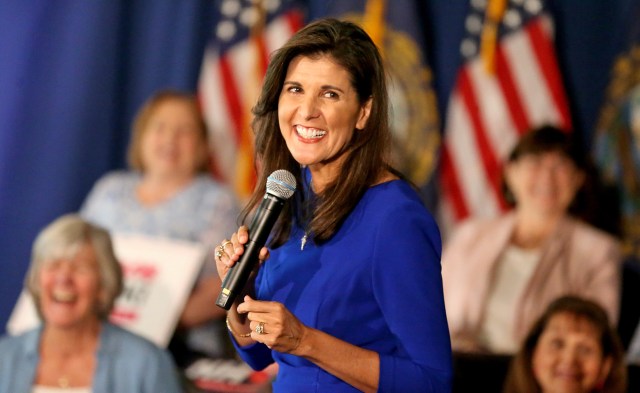Former governor and UN ambassador Nikki Haley (R-SC) suggested doing away with the federal gas tax in order to bring down fuel prices for customers during the most recent Republican primary debate.
While removing the tax could offer some short-term respite at the pump, it would really make matters worse by further limiting the federal government's ability to raise sound income during a period of rising debt, which could exacerbate inflation.
Since 1993, the federal gas tax has been fixed at 18.4 cents for gasoline and 24.4 cents for diesel per gallon. Revenues from the federal gas tax go into the Highway Trust Fund, which is subsequently disbursed to the states by the federal government to finance transportation initiatives. However, since 1993, real federal gas tax receipts have decreased by more than 50% due to inflation. Due to this decrease, federal highway spending has not been met by gas tax revenue, requiring transfers from the general budget to maintain the Highway Trust budget's viability. Given that income taxes account for over 60% of federal revenue and payroll taxes for another 30%, it appears that we are increasingly going toward a policy that rewards road use while penalizing work, saving, and investing.
The change is regrettable because the gas tax is a financially sound method of financing transportation projects. The user pays concept, which states that those who buy more gasoline also benefit more from roadway improvements, is essentially what the gas tax does.

But the gas tax isn't the ideal user fee. For instance, owners of electric vehicles (EVs) avoid paying the gas tax while still being able to travel freely on highways and, in reality, adding to the expense of road maintenance because of the EVs' relatively considerable weight. It's not a big deal just yet, as EVs account for less than 1% of all vehicles in the United States, but as EV share increases over time, it will probably become more of a concern.
A vehicle miles traveled tax, or VMT tax, may eventually take the role of the gas tax. A vehicle mass tax (VMT) would more closely resemble the expense that automobiles inflict on highway infrastructure since it would be based on both the number of miles driven and the weight of the vehicle per axle.
However, the Haley plan calls for completely eliminating the gas tax rather than substituting a more sensible user charge. If the gas tax were eliminated without being replaced by another user fee, funding infrastructure would become even more dependent on general federal revenue, which would result in relatively damaging taxes. Eliminating the gas tax runs the risk of increasing the pressure on income taxes to bridge the gap, which would be detrimental to the economy given the enormous deficits anticipated over the next ten years.
With the exception of Missouri, Alaska, and Mississippi, which taxes gas at the same rate as the federal government, every state levies a larger tax than the federal one, making the federal gas tax negligible when compared to the overall amount of taxes paid at the pump. The federal gas tax is the biggest consumption-based tax levied by the federal government, although being substantially lower than gas taxes in the majority of developed nations and state-level levies. The United States' tax revenue composition would become less oriented toward consumption and more toward more distortionary taxes like income tax if the gas tax were repealed.
It's interesting to note that Haley changed course while serving as South Carolina's governor. She suggested a tax swap in 2015 that would have reduced the top individual income tax rate from 7% to 5% and raised the state gas tax by 10 cents per gallon. It would be praiseworthy if a government proposal of that kind was made.
Haley has also supported permanentizing the Tax Cuts and Jobs Act's (TCJA) personal income tax cuts. These policies are generally pro-growth, but they would significantly exacerbate deficits on their own. To finance these tax cuts in a prudent manner, one possible solution would be to increase the gas tax and adjust it to inflation. The math for the budget gets much more challenging without that choice.




















